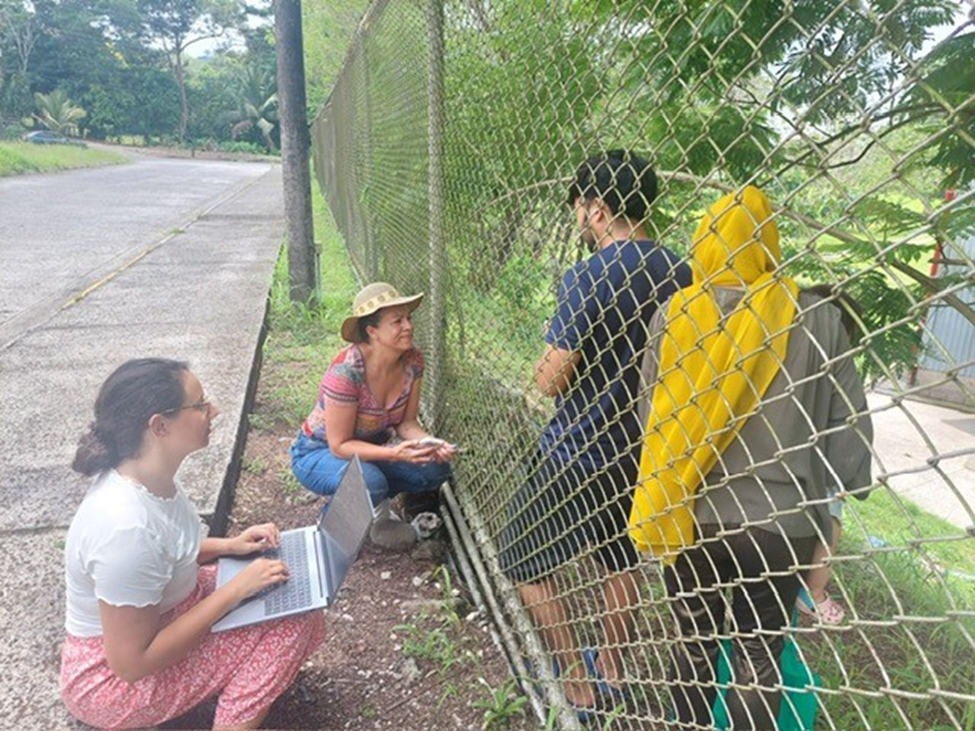
Rodrigo Henríquez
The Constitutional Chamber of Costa Rica has partially upheld a habeas corpus petition filed on behalf of the 200 migrants deported from the United States to Costa Rica in February of this year.
The original petition was submitted by journalist Mauricio Herrera, with the support of the Center for Justice and International Law (CEJIL), the Jesuit Service for Migrants Costa Rica (SJM-CR), and the American Friends Service Committee (AFSC), who participated as co-petitioners.
The Court found that the migrants’ right to personal liberty had been violated, ordered their release, and instructed the government to “determine the type of health, education, housing, and overall social assistance these individuals require from the State.” The Court also ordered the authorities to pay compensation for the harm caused by the detention.
This decision, the first of its kind in the region, sets a fundamental precedent for the protection of migrants’ rights. While the Court stated that the act of receiving people for humanitarian reasons is not subject to constitutional review, it clearly established that migrants cannot be deprived of their liberty.
The ruling also acknowledges the State’s obligation to guarantee other rights, such as access to health care, education, and housing. In other words, the authorities’ actions carry consequences, and they cannot leave people without protection.
CEJIL, SJM-CR, and AFSC welcome this historic decision, which offers a glimmer of hope for the thousands of people in mobility whose rights are violated daily.
Currently, eight families from Russia, Armenia, Azerbaijan, Turkey, and Afghanistan remain at the Temporary Migrant Attention Center (CATEM) in southern Costa Rica. These families include mothers, fathers, children, and adolescents. They do not have the financial means to support themselves in Costa Rica, and returning to their home countries is not an option, as their lives would be at risk. They never chose to come to Costa Rica voluntarily—they were forced to enter. Thanks to the Constitutional Court’s decision, they now have the right to be compensated for their unjust and arbitrary detention.
We trust that the government of Costa Rica will honor its long-standing tradition as a country that respects human rights and will fully comply with the Court’s decision. We explicitly call on the authorities to refrain from accepting additional deported individuals under similar circumstances, to avoid further violations of human rights.
Signatories - American Friends Service Committee, Center for Justice and International Law, and Servicio Jesuita para Migrantes Costa Rica
Español abajo
Costa Rica: Decisión de Sala Constitucional representa un precedente para los derechos de las personas migrantes en la región
La Sala Constitucional de Costa Rica declaró parcialmente con lugar un recurso de hábeas corpus interpuesto a favor de las 200 personas migrantes que fueron deportadas desde Estados Unidos a Costa Rica en febrero de este año.
El proceso fuente interpuesto originalmente por el periodista Mauricio Herrera, con la participación como coadyuvantes del Centro por la Justicia y el Derecho Internacional (CEJIL), el Servicio Jesuita para Migrantes Costa Rica (SJM-CR) y American Friends Service Committee (AFSC).
La Sala consideró que se vulneró el derecho a la libertad personal de las personas migrantes, ordenó su liberación y, además, “determinar qué tipo de asistencia en salud, educación, vivienda y en general, de tipo social requieren por parte del Estado”. El máximo tribunal condenó a las autoridades al pago de los daños y perjuicios ocasionados.
Esta decisión, única en la región, es un precedente fundamental para la protección de los derechos de las personas migrantes. Si bien la Sala señala que el acto de aceptar personas por razones humanitarias no está sujeto a control de constitucionalidad, sí pone límites claros al indicar que no se les puede privar de su libertad.
A su vez, reconoce que el Estado está obligado a garantizar otros derechos de estas personas, como el acceso a la salud, educación y vivienda, es decir, las actuaciones de las autoridades tienen consecuencias y no pueden dejarles en desprotección.
Desde CEJIL, el SJM-CR y AFSC saludamos esta decisión histórica que constituye una luz de esperanza para las miles de personas en situación de movilidad que ven vulnerados sus derechos de manera cotidiana.
Actualmente, 8 familias provenientes de Rusia, Armenia, Azerbaiyán, Turquía, y Afganistán permanecen en el Centro de Atención Temporal Migratoria (CATEM) en el sur del país. Son familias integradas por madres, padres, niños, niñas y adolescentes. No tienen recursos económicos para sostenerse en Costa Rica, tampoco pueden regresar a sus países porque sus vidas corren peligro. Nunca quisieron voluntariamente venir a Costa Rica, y, sin embargo, fueron obligados a ingresar. Gracias a la decisión de la Sala Constitucional estas personas tienen un derecho a ser resarcidas por su injusta y arbitraria detención.
Confiamos que el gobierno de Costa Rica honrará su tradición histórica como un país respetuoso de los derechos humanos y cumplirá a cabalidad con la decisión constitucional. Solicitamos expresamente que se abstenga de aceptar a otras personas expulsadas en condiciones similares y eviten así incurrir en violaciones adicionales a los derechos humanos.
Signatories - American Friends Service Committee, Center for Justice and International Law, and Servicio Jesuita para Migrantes Costa Rica